Search Results
Showing results 41 to 60 of 72

Light Combinations
Source Institutions
In this activity about magnetism (page 17 of the pdf), learners experiment with magnets, exploring the concept of diamagnetic materials by seeing how a grape reacts to a magnetic field.
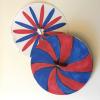
Opti-Top
Source Institutions
In this activity, learners will create an optical illusion top. Learners will explore color mixing, physics and design through this activity.
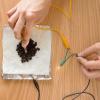
Aluminum-Air Battery: Foiled again!
Source Institutions
Construct a simple battery that's able to power a small light or motor out of foil, salt water, and charcoal. A helpful video, produced by the Exploratorium, guides you along on this activity.
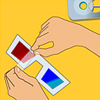
Seeing 3D
Source Institutions
Create 3D glasses and use them to explore color, light and optics. Fool your brain into 'seeing' three dimensions on a flat surface!

Pringles Pinhole Camera
Source Institutions
An ordinary camera has a lens that makes an image on film. In a pinhole camera, a small hole replaces the lens.
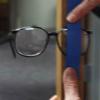
Make Your Own Telescope
Source Institutions
Discover how a refracting telescope works by making one from scratch using common items. This telescope won't have a tube so the learner can see how an image is formed inside the telescope.
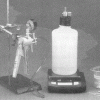
As Light as Air
Source Institutions
Learners measure a bottle full of air, and then use a vacuum pump to remove the air. When they re-weigh the bottle, learners find the mass is about 0.8g less.
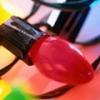
Series and Parallel Circuits
Source Institutions
In this activity, learners demonstrate and discuss simple circuits as well as the differences between parallel and serial circuit design and functions.

Safer with Science-Masks
Source Institutions
Why should we wear masks? Do masks work? Do some masks work better than others? Learners find out in this activity.

Lighting Up Celery Stalks
Source Institutions
In this activity, learners conduct a series of hands-on experiments that demonstrate how the working of plants' veins, known as capillary action, enables water to travel throughout the length of a pla
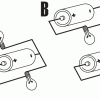
Fork in the Road
Source Institutions
In this activity about electricity, learners identify parallel and series circuits. First, learners examine and label diagrams of complete circuits.
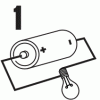
Circuit Sense
Source Institutions
In this activity about electricity, learners identify closed and open circuits. First, learners examine and label diagrams of open and closed circuits.
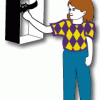
Afterimage
Source Institutions
In this activity about vision and optical illusions, learners conduct a simple test to demonstrate how our eyes create "afterimages." Learners stare at a black cardboard bat for at least 30 seconds an

Tie Dye Painting
Source Institutions
This is an activity exploring color and color mixing.
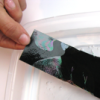
Exploring Materials: Thin Films
Source Institutions
In this activity, learners create a colorful bookmark using a super thin layer of nail polish on water. Learners discover that a thin film creates iridescent, rainbow colors.

See It to Believe It: Visual Discrimination
Source Institutions
In this activity (12th on the page), learners investigate their ability to discriminate (see) different colors.

How to View a Solar Eclipse
Source Institutions
This is an activity to do when there is a solar eclipse!
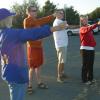
Does the Moon Rotate?
Source Institutions
This fun and simple hands-on astronomy activity lets learners make 3-dimensional models of the Earth and Moon.
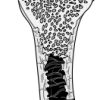
Round, Light and Hollow
Source Institutions
In this activity about bones (page 12 of PDF), learners investigate and compare the weight-bearing capacity of solid and hollow cylinders.

Tasty Buds
Source Institutions
In this activity (1st activity on the page), learners explore their sense of taste and the structure of the tongue by taste-testing various foods.
